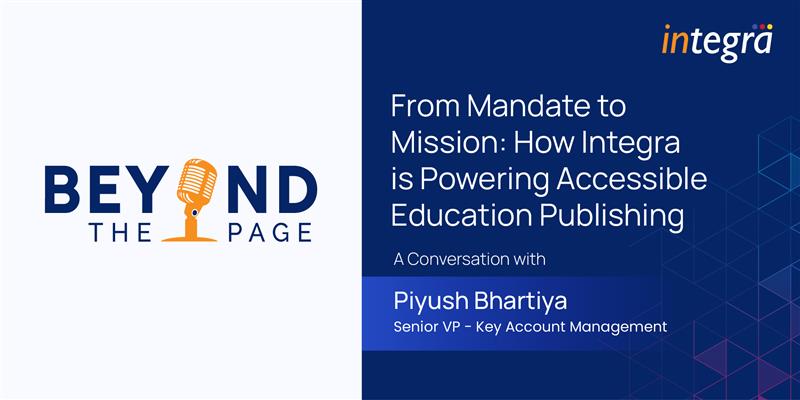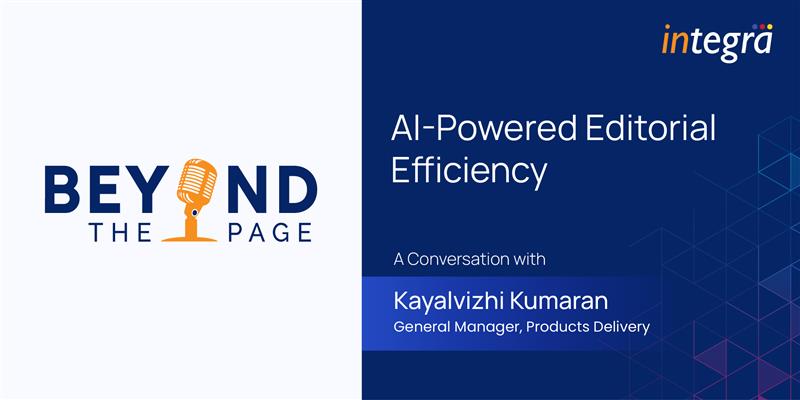From First Draft to Final Proof: Enhancing the Author Journey

In the ever-expanding research space, getting a manuscript published is equally difficult (if not more) as the research process itself. Authors struggle to meet journal specifications, and even the slightest miss may cause manuscript rejection, even without reaching the peer-review stage. AI-powered tools have revolutionized the manuscript authoring and submission process, simplifying the lives of authors, especially those writing in non-native languages.
Discover how modern journal publishing platforms are transforming the entire process from the ideation stage to the final draft.
Pre-Submission: Making a Strong Start
Authors struggle to meet stringent journal guidelines and language quality standards, which results in rejections even before peer review. Issues such as nonconformity to journal style and format, plagiarism incidents, and journal scope weed out manuscripts that do not fit the journal’s scope and resubmitting to another journal requires enormous rework. This emphasizes the need to refine the manuscript before submission and ensure that all criteria are met. AI-powered automated publishing workflows help maximize chances of manuscript acceptance.
This is because user-friendly self-service automation tools enable authors to assess content flow, improve language, and organize references, tables, images, and other supplementary data effectively. They can also use these tools for tone adjustment and cultural alignment. Pre-submission edits with cloud-based platforms and journal-specific formatting with smart styling tools solidify a manuscript’s launch in the publishing process.
Editorial Screening: The Crucial Middle
ML/NLP-powered automated editing determines the success of the published content. This eliminates personal biases, and human error, which can occur during manual editing. Market analysis determines the success rate and suggests improvements to enhance discoverability, promotion, impact, and ROI. Human editors can then focus on value-added activities for the manuscript.
Technology tools that aid in efficient and thorough screening free up time for editors while aligning editing objectives with the target market and its requirements.
Collaborative Peer Review: Combining Strengths
Effective peer review determines the adequacy of research and the level of expertise, which impacts the overall quality of the published content. AI-enabled journal publishing platforms streamline peer reviews. These tools ensure that the process remains impartial, eliminating the need for multiple rounds of reviews. Modern collaboration tools facilitate real-time feedback, tracking of changes, and fostering an interactive review process.
From Feedback to Final Proof: The Final Lap
Advanced systems that track the entire manuscript journey assist proofreaders in conducting final checks of structure, layout, format, and other aspects of the manuscript. By tracking feedback and revisions with user identifiers, these tools help monitor changes, maintain version histories, and ease document finalization without manual intervention to manage feedback and revisions.
How AI is Transforming Journal Publishing Ecosystem
As of June 2023, 47% of authors are leveraging AI-powered tools for grammar assessment, and 23% as brainstorming and ideation assistants. AI has revolutionized the end-to-end publishing ecosystem by streamlining manuscript progression from submission to editing, rework, and review, to finally publishing. Most importantly, cloud-based tools facilitate the identification of suitable journals and manuscript scoping at early stages to prevent later bottlenecks.
In the rapidly evolving and competitive academic publishing landscape, adopting advanced technologies is essential to expedite the publishing journey and stay competitive. AI-powered journal publishing platforms help automate and streamline publishing workflows to maximize the capacity of the publishing house. The future promises a unified publishing ecosystem where inter-publisher manuscript movement and multi-journal publishing could be possible. AI-powered publishing modernization will also minimize manuscript rejections associated with overlapping specializations in cross-disciplinary learning domains.
Integra’s iAuthor has proven instrumental in transforming author and editor experiences. The comprehensive tool for automating publishing workflows has helped publishers boost the number of publications, reduce rejections, and expedite authoring and proofing while ensuring transparency and speed. Transform your publication process with exhaustive manuscript progress automation and streamlining by leveraging cutting-edge technologies. Talk to the experts at Integra now.
Recent Blogs

Strategic Standards Alignment in K–12 Education through Smart Content and Intelligent Infrastructure



